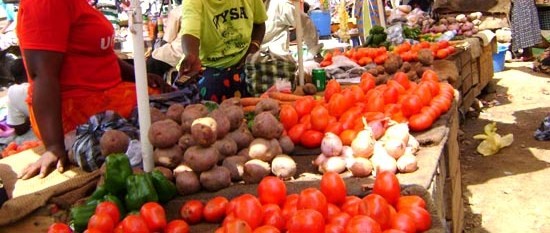Officials from South Sudan’s Chamber of Commerce have urged business people to avoid enriching themselves by taking advantage of the nation’s economic woes.
The appeal came after several citizens complained about rising prices, which they say, forces them to reduce on consumption levels.
Speaking at a press conference in Juba on Wednesday, Simon Akuei Deng, the Secretary General of Chamber of Commerce said many traders have had to forego commodities due rise in prices.
“While the margin of profit, according to World Trade Organization, is 18-20 percent, the crisis in the country called for an adjustment, going up to 25-30 percent, but not up to 100 percent,” said Deng.
He said some business people transfer the costs of buying commodities and taxes involved in the transportation to consumers.
“That is not correct. We find it to be not in favour of people and not in favour of anyone except the one increasing prices,” said Deng.
He added, “What we are saying is that let it be reasonable, let the prices be reasonable and reasonable means 25-30 percent.”
The official urged traders not to take advantage of consumers.
“When we talk of a free market economy, it does not mean you reap off your own people. A free market is the one managed by responsible people and private sector has responsible people,” he stressed.
On his part, the deputy chairman of Chamber of Commerce, Lado Lukak Legge urged business communities to desist from taking advantage of consumers.
“Our people are suffering, the purchasing power is very low while for some reasons some of the members of the private sector continue to increase prices even if the dollar is stable in the market,” said Legge.
“As Chamber of Commerce, we find it not to be in place and so we appeal to members of the private sector not to take advantage of our people,” he added.
Since the outbreak of the country’s civil war in mid-December 2013, the dollar has often surged and fluctuated against the local currency with one dollar trading between 280 SSP and 290 SSP.
“What we are trying to dispute here is that today, you find there is an increase of 1,000 SSP here, tomorrow 2,000 SSP, then in one shop an increase of 3,000 SSP and then 4,000 SSP in another shop,” he said.
“These are the things that we are saying are not correct,” he added.
About 90% of South Sudan government’s revenue comes from oil resources, while the rest is collected in the form of customs taxes, market taxes, road taxes, income tax and permits, among others.




